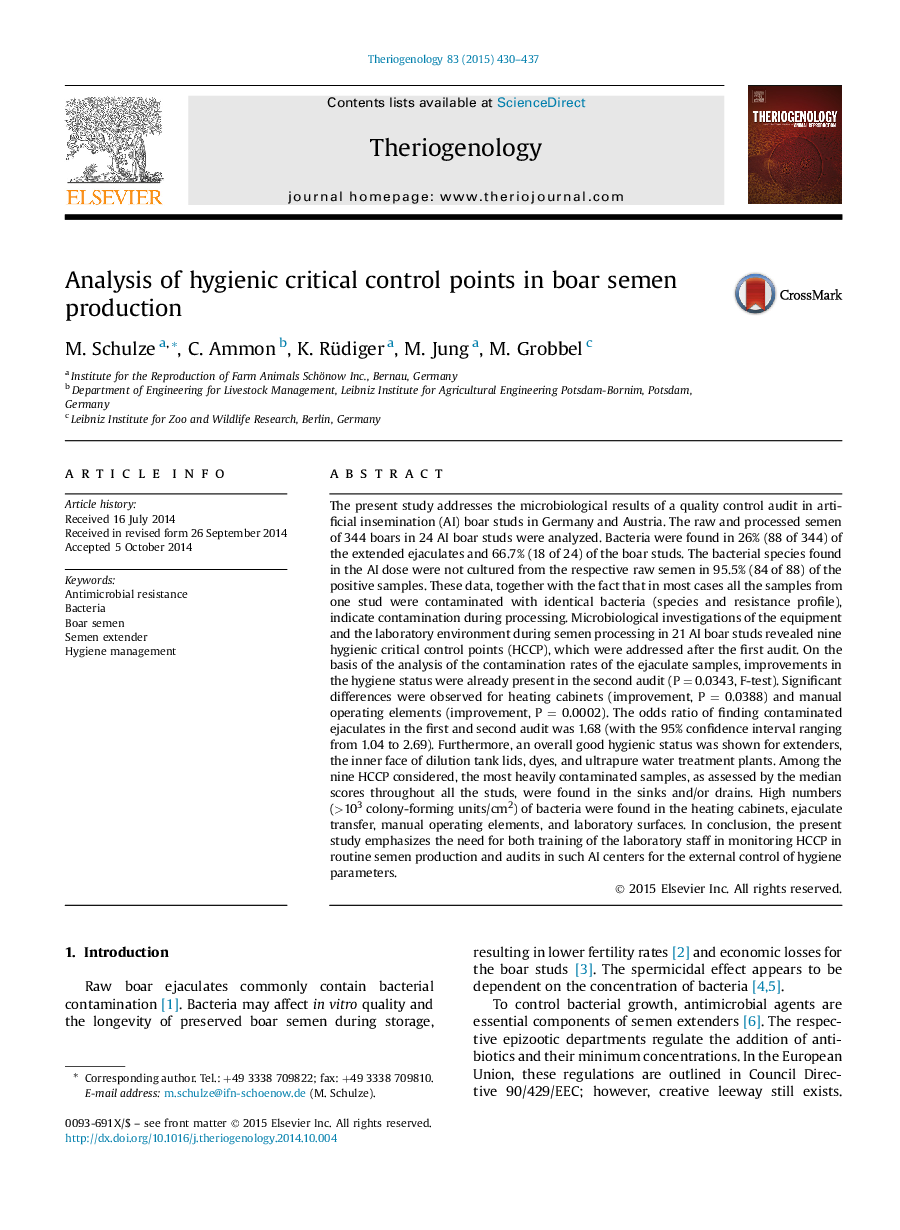| Article ID | Journal | Published Year | Pages | File Type |
|---|---|---|---|---|
| 2095046 | Theriogenology | 2015 | 8 Pages |
The present study addresses the microbiological results of a quality control audit in artificial insemination (AI) boar studs in Germany and Austria. The raw and processed semen of 344 boars in 24 AI boar studs were analyzed. Bacteria were found in 26% (88 of 344) of the extended ejaculates and 66.7% (18 of 24) of the boar studs. The bacterial species found in the AI dose were not cultured from the respective raw semen in 95.5% (84 of 88) of the positive samples. These data, together with the fact that in most cases all the samples from one stud were contaminated with identical bacteria (species and resistance profile), indicate contamination during processing. Microbiological investigations of the equipment and the laboratory environment during semen processing in 21 AI boar studs revealed nine hygienic critical control points (HCCP), which were addressed after the first audit. On the basis of the analysis of the contamination rates of the ejaculate samples, improvements in the hygiene status were already present in the second audit (P = 0.0343, F-test). Significant differences were observed for heating cabinets (improvement, P = 0.0388) and manual operating elements (improvement, P = 0.0002). The odds ratio of finding contaminated ejaculates in the first and second audit was 1.68 (with the 95% confidence interval ranging from 1.04 to 2.69). Furthermore, an overall good hygienic status was shown for extenders, the inner face of dilution tank lids, dyes, and ultrapure water treatment plants. Among the nine HCCP considered, the most heavily contaminated samples, as assessed by the median scores throughout all the studs, were found in the sinks and/or drains. High numbers (>103 colony-forming units/cm2) of bacteria were found in the heating cabinets, ejaculate transfer, manual operating elements, and laboratory surfaces. In conclusion, the present study emphasizes the need for both training of the laboratory staff in monitoring HCCP in routine semen production and audits in such AI centers for the external control of hygiene parameters.
